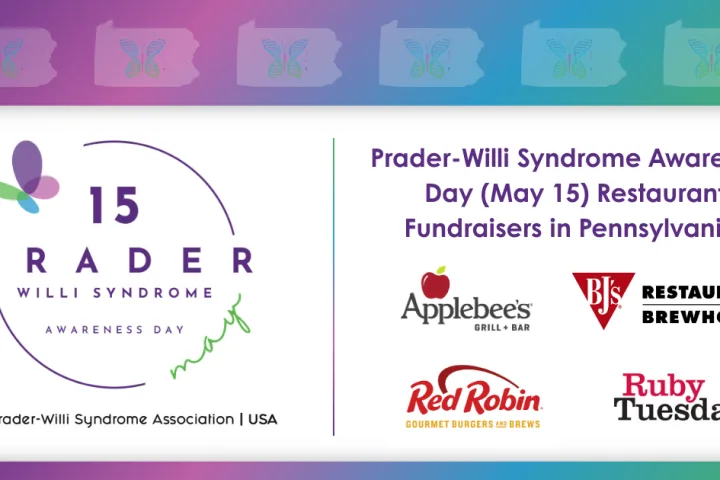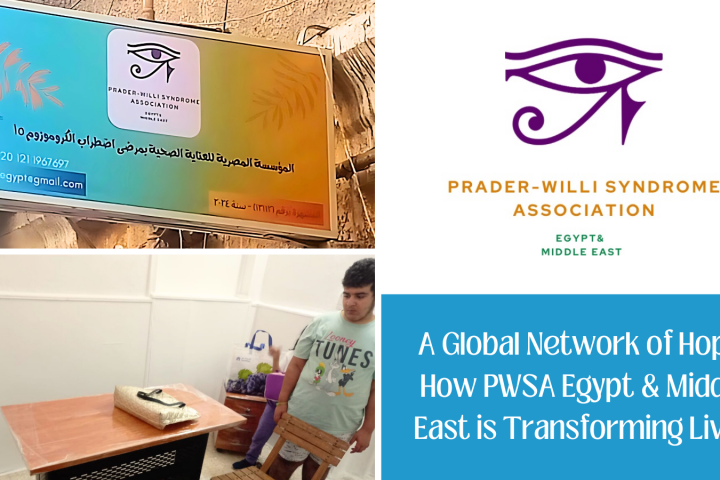One of the many areas impacted by COVID-19 virus has been the ability of adults with Prader-Willi syndrome (PWS) to socialize. As there are many studies that outline the emotional challenges and decline that social distancing is causing, it is important to explore and discuss opportunities for adults with PWS to create new social experiences and how they can be supported during these challenging times.
Currently, many adults with PWS are unable to go to school, work, or participate in a day program. Special Olympics sporting activities have been canceled, activities that before served as a primary means of connecting and socializing with friends. Social distancing, masks, and no physical contact have also made it difficult to stay connected with family, friends, and community members.
I recently reached out to families and residential care providers of adults who have PWS to see what they are doing to address the need for socialization.
Here are creative ways adults with PWS are staying socially connected:
- Going for walks and hikes in unpopulated areas where they can maintain social distance. Seeing people, even from afar, helps alleviate the sense of confinement. Walks also allow for saying “Hi!” to neighbors (and their puppies!).
- Visiting a farm and picking strawberries.
- Setting up occasional meetings with 1 friend at a time, maintaining social distance and wearing face coverings.
- Working on special projects, including painting and building a fence.
- Completing very complex jigsaw puzzles.
- Caring for baby and adult chickens.
- Hosting a “family movie night” once a week that included tickets and popcorn. (One residential provider used an inflatable outdoor movie screen for “outdoor movie time.” Another hosts weekly indoor movies and popcorn.)
- Having regularly scheduled calls and meetings with family and friends via phone, Zoom, and Facetime.
- Participating in PWSA | USA virtual social hours. (There have been 2 so far; One for individuals under 22 years of age, and one for those 22 years and older.)
- Participating in a weekly Zoom video chat group for adults with PWS. (Sponsored by a state PWS chapter.)
- Staying connected with friends and family on social media.
- Having “special time” playing games with family members.
- For those individuals still enrolled in school, participating in virtual classes.
- Attending virtual clinical sessions and other appointments.
- Utilizing videos or online classes, such as weekly Zumba classes, art classes, yoga classes, and a PEERS social skills group video training.
- Attending Zoom calls wherein attendees shared a variety of activities, provided music by different artists, and spoke on several topics. (The staff at one day care center even did a drive around parade to people enrolled in their program.)
Meeting both the social and safety needs of adults with PWS can be challenging. But, by sharing information and ideas, we can continue to find ways to stay connected with our loved ones and each other.
Contributed by Barb Dorn





 Jennifer Bolander has been serving as a Special Education Specialist for PWSA (USA) since October of 2015. She is a graduate of John Carroll University and lives in Ohio with her husband Brad and daughters Kate (17), and Sophia (13) who was born with PWS.
Jennifer Bolander has been serving as a Special Education Specialist for PWSA (USA) since October of 2015. She is a graduate of John Carroll University and lives in Ohio with her husband Brad and daughters Kate (17), and Sophia (13) who was born with PWS. Perry A. Zirkel has written more than 1,500 publications on various aspects of school law, with an emphasis on legal issues in special education. He writes a regular column for NAESP’s Principal magazine and NASP’s Communiqué newsletter, and he did so previously for Phi Delta Kappan and Teaching Exceptional Children.
Perry A. Zirkel has written more than 1,500 publications on various aspects of school law, with an emphasis on legal issues in special education. He writes a regular column for NAESP’s Principal magazine and NASP’s Communiqué newsletter, and he did so previously for Phi Delta Kappan and Teaching Exceptional Children. Evan has worked with the Prader-Willi Syndrome Association (USA) since 2007 primarily as a Crisis Intervention and Family Support Counselor. Evans works with parents and schools to foster strong collaborative relationships and appropriate educational environments for students with PWS.
Evan has worked with the Prader-Willi Syndrome Association (USA) since 2007 primarily as a Crisis Intervention and Family Support Counselor. Evans works with parents and schools to foster strong collaborative relationships and appropriate educational environments for students with PWS. Dr. Amy McTighe is the PWS Program Manager and Inpatient Teacher at the Center for Prader-Willi Syndrome at the Children’s Institute of Pittsburgh. She graduated from Duquesne University receiving her Bachelor’s and Master’s degree in Education with a focus on elementary education, special education, and language arts.
Dr. Amy McTighe is the PWS Program Manager and Inpatient Teacher at the Center for Prader-Willi Syndrome at the Children’s Institute of Pittsburgh. She graduated from Duquesne University receiving her Bachelor’s and Master’s degree in Education with a focus on elementary education, special education, and language arts. Staci Zimmerman works for Prader-Willi Syndrome Association of Colorado as an Individualized Education Program (IEP) consultant. Staci collaborates with the PWS multi-disciplinary clinic at the Children’s Hospital in Denver supporting families and school districts around the United States with their child’s Individual Educational Plan.
Staci Zimmerman works for Prader-Willi Syndrome Association of Colorado as an Individualized Education Program (IEP) consultant. Staci collaborates with the PWS multi-disciplinary clinic at the Children’s Hospital in Denver supporting families and school districts around the United States with their child’s Individual Educational Plan. Founded in 2001, SDLC is a non-profit legal services organization dedicated to protecting and advancing the legal rights of people with disabilities throughout the South. It partners with the Southern Poverty Law Center, Protection and Advocacy (P&A) programs, Legal Services Corporations (LSC) and disability organizations on major, systemic disability rights issues involving the Individuals with Disabilities Education Act (IDEA), Americans with Disabilities Act (ADA), and the federal Medicaid Act. Recently in November 2014, Jim retired.
Founded in 2001, SDLC is a non-profit legal services organization dedicated to protecting and advancing the legal rights of people with disabilities throughout the South. It partners with the Southern Poverty Law Center, Protection and Advocacy (P&A) programs, Legal Services Corporations (LSC) and disability organizations on major, systemic disability rights issues involving the Individuals with Disabilities Education Act (IDEA), Americans with Disabilities Act (ADA), and the federal Medicaid Act. Recently in November 2014, Jim retired.